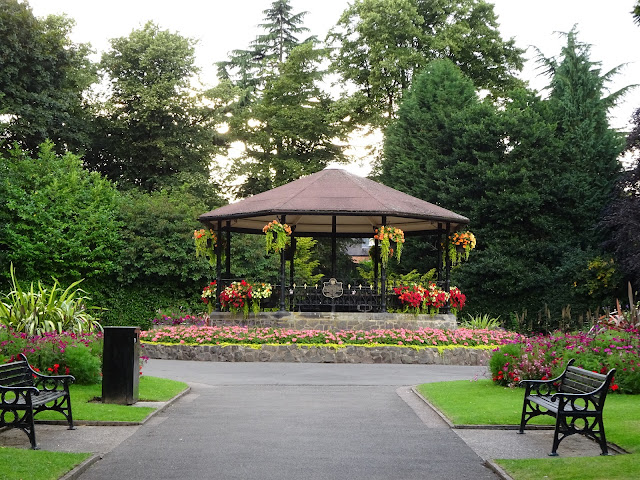Last week we learned about the chrysanthemum and celery shows that took place in Loughborough and nearby. One of the people mentioned in relation to the Leicester and Leicestershire Chrysanthemum and Celery Society Exhibition of 1883 was Walter Chapman Burder, who at the time of the shows lived at 153 Park Road, but who later moved to Field House. This show took place only a year before Burder took over the ownership of the horticultural engineering business of Thomas Messenger.
It comes as no surprise that Messengers placed advertisements in a variety of publications - newspapers, magazines and their own catalogues - for their products. This example is from the Gardeners' Chronicle of 24 November 1883:
But what of this product, referred to as the Loughborough hot water apparatus, which was advertised in the same magazine as the Messenger greenhouse above?
Is this also a Messenger product? The history of Deane & Co. is well covered on a site about the Greenwich Park bandstand, which was produced by the company in 1880. Interesting that the company was involved in the creation of the bandstand: ours in Queen's Park, which was installed in 1902, was created by Hill & Smith of Brierley Hill in the West Midlands, and was in commemoration of the coronation of Edward VII. When Queen's Park was extended, the bandstand was moved from its original position, which was close to Granby Street, to its current position in 1908.
Hill & Smith actually created just over 40 bandstands across the country, some as far away as Exmouth and Bishop Auckland, and some as close as Kettering, Northampton, and Swadlincote. Easton Gardens, one of two gardens created in Easton on the Isle of Portland, in commemoration of Queen Victoria's Diamond Jubilee (although created somewhat later, around 1904) also has a bandstand that was created by Hill & Smith. The gardens also has a clock tower, the tower of which was made from the local Portland stone, and the clock also houses a bell cast by Taylors of Loughborough. Portland stone is also used in the construction of Loughborough's carillon.
Posted by lynneaboutloughborough 25 July 2021
You are welcome to quote passages from any of my posts, with appropriate credit. The correct citation for this looks as follow:
Lynne




No comments:
Post a Comment
If you have found this post interesting or have any questions about any of the information in it do please leave a comment below. In order to answer your question, I must publish your query here, and then respond to it here. If your information is private or sensitive, and you don't wish to have it on public display, it might be a better idea to email me using the address which is on the About Me page, using the usual substitutions: if you take the email route, our conversation remains private, and is not published on the blog. Thanks for reading the blog.